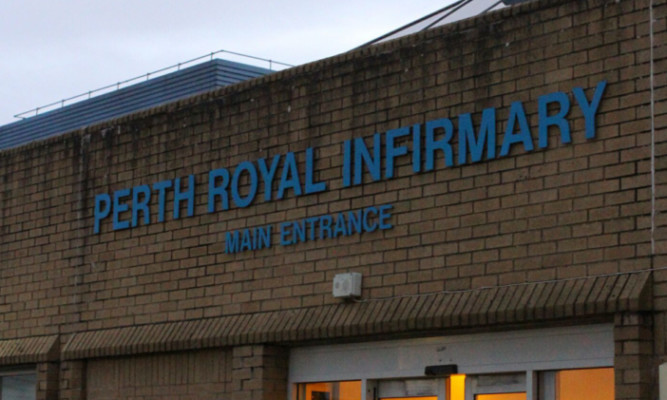An elderly dementia patient was sent home from Perth Royal Infirmary with a fractured hip.
NHS Tayside has been ordered to apologise after the woman’s sudden loss of mobility was not properly investigated.
The woman, named only as Mrs A in the report, was admitted in February 2013 but by the time she was discharged three months later, she had still not regained the ability to walk. The hip fracture was not diagnosed until September of that year.
Additionally, staff at the hospital placed a “Do Not Resuscitate” (DNACPR) notice in the woman’s files without the family’s knowledge or consent.
Her son-in-law made a series of complaints about NHS Tayside to the Scottish Public Sector Ombudsman (SPSO), which have now been upheld.
He stated that the family’s fears that she had fallen were ignored by medical staff and that the woman’s leg was never X-rayed during her stay in hospital.
The man, referred to as Mr C, told the SPSO, that they have since learned that Mrs A will never walk again and she is now doubly incontinent.
He said that the decision to place a DNACPR notice in the woman’s files was not discussed with the family and he doubted that Mrs A was in a position to give informed consent to it, given her state of health and acknowledged dementia.
The ombudsman sought the advice of a consultant geriatrician when investigating the complaint.
In a report it said: “The advice I have received is that there is evidence Mrs A had suffered a fall immediately prior to admission but that this was overlooked.
“This evidence, coupled with Mrs A’s sudden and dramatic loss of mobility, the lack of an alternative diagnosis and the lack of improvement in her condition, should have prompted consideration of a hip fracture.
“The advice I have received is that it would have been reasonable to expect Mrs A’s X-rays of the hip to be arranged during the first week of her admission but that this did not happen.
“The adviser has stated that he believes the focus on Mrs A’s dementia was appropriate but there was a more general failure to consider alternative diagnoses when she failed to respond to treatment.
“The adviser’s view is that Mrs A’s care and treatment fell below the standard that her family could reasonably have expected and in some areas, well below this standard.”
A further complaint in relation to NHS Tayside’s own review of treatment was also upheld.
A number of recommendations have been made to NHS Tayside.
